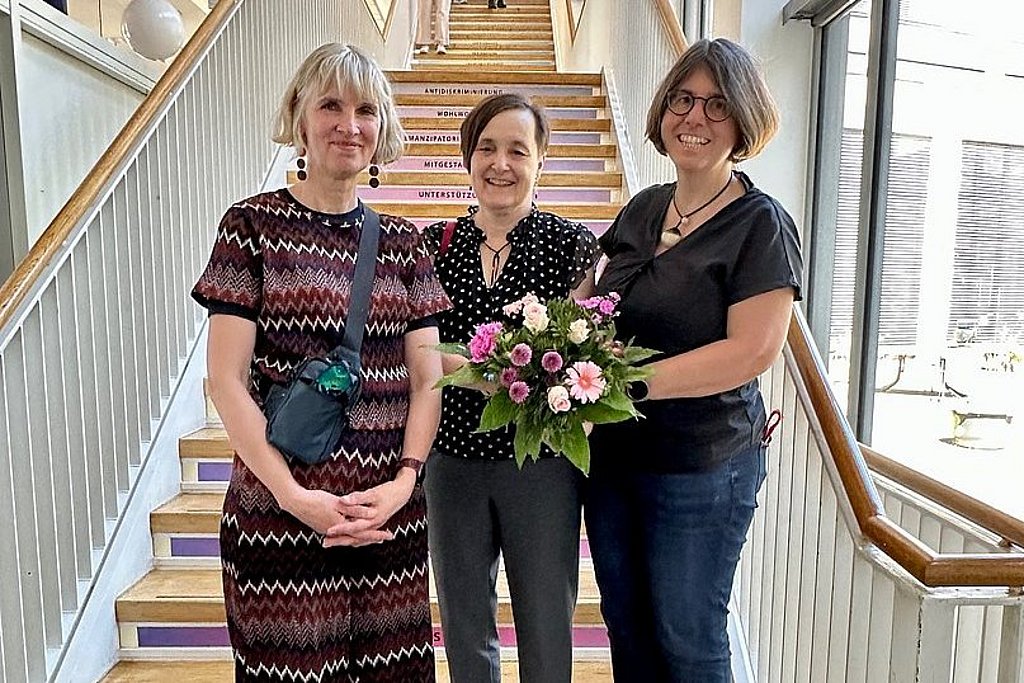This week, the physiotherapy/occupational therapy course at ASH Berlin welcomes a special international visitor: Prof. Dr. Debbie Laliberte Rudman from Western University in Canada. The renowned scientist is regarded as one of the world's leading voices in occupational therapy and occupational science. Prof. Laliberte Rudman was warmly welcomed yesterday by the two occupational therapy professors Prof. Silke Dennhardt and Prof. Elke Kraus.
Also guests yesterday were almost 30 students from the Austrian IMC Krems University of Applied Sciences, who are studying occupational therapy in their 6th semester. They were accompanied by their professor Larisa Baciu. They took part in a workshop with Prof. Laliberte Rudman together with the 2nd semester occupational therapy students on the PT/ET primary qualification course at ASH Berlin.
The event focused on the social and political determinants of health and activity - key topics in occupational science and occupational therapy. The event kicked off with an introduction to ASH Berlin and the biography of Alice Salomon by Julien Schwarz from the International Office as well as presentations of the degree programs by students from IMC Krems and Prof. Dennhardt. Prof. Rudman also gave an insight into occupational therapy training in Canada, where a Master's degree is a prerequisite for practicing the profession.
A particular highlight was Prof. Rudman's keynote speech entitled "Expanding beyond an individualistic lens: Socio-political determinants of occupation and occupational inequities". It became clear that participation in activity is not only the goal, but also the object of occupational therapy work.
In mixed small groups, the workshop participants then worked with the "Tree Model" presented by Prof. Rudman to identify and critically discuss social determinants of health and activity based on specific case studies. The focus was on the question of how occupational therapists can counter structural inequalities - beyond the purely individual perspective.
The event was characterized by a lively exchange, international diversity of perspectives and great interest in the content - an inspiring day for all participants from Europe and overseas.



